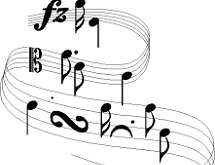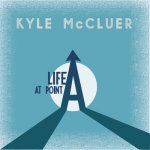![]()
DIY: What Are You Being Paid to Do?
Be you an indie artist or online music source (like a radio station or podcast), if your goal is to make what you do a career, then deciding what you are selling is of major importance.
"I want to be paid for my songs" is as weak a call as "advertisers should pay to reach my audience." Neither is a strong enough reason for people to give you their attention, time or money. What's not often discussed is "why" they should pay. Discussed less often is how you get to a position where what you offer has value.
|
The above are tough items to ponder when your heart is into playing music or creating audio for fans. Supply vs. demand is very much alive, with access to exposure ("being found") becoming increasingly difficult as digital moved into mainstream use. This is the crux of what I have focused on since 2003. |

|
During the twenty-plus years that I've been involved with internet radio and independent artists, my observations have been laid out at Audio Graphics multiple times. One for artists is here. For audio providers, one is here.
To summarize each: 1) An artist's music holds little value until it is desired or considered a "draw," and that is always preceded by exposure; 2) An online audio source is seldom more than a jukebox on steriods, costing more in royalty fees than current advertising or subscription monetization plans recover.
Audio provider or artist, either sits as a water molecule in its respective sea of choice.
My solution created a library of songs, across multiple genres. I make these songs freely available to people who build the music sites that gather an audience where artists can find exposure. Songs are screened for production quality, relevancy and artist competency.
Songs are, literally, free for the audio source to download and use. Artists sign a waiver of performance and publishing fees. (Artists, please note: To justify this waiver, I have seen many revenue reports from multiple music-based sites, big and small. It is easy for me to say 99% of audio companies I'm familiar with make no-to-little profit.) The audio source has an audience, which an artist will be exposed to, but it hasn't been able to make profit.
"Audience" is what an audio source is paid to deliver. That this industry has not been able to monetize it is a royalty payment problem.
Meanwhile, artists need an on-ramp to exposure. Talent is nothing without exposure. There are tens-of-thousands of brilliant musicians who can't catch a break because they can't find an audience.
This should be a Kumbaya moment.
My approach is not for everyone. Artists who are already a draw need to be paid. They have a fan-base and are the reason so many music programs have shrunk to a 30 song playlist.
On the other side, however, we have musicians seeking exposure. Their highest hurdle is in having someone take time to listen, then to play their song for others. At this stage of growth, as an artist, "what you are being paid to do" is not yet the issue. Any unproven song might be a tune-out for audience of the audio source playing it.
Stations, podcasters and music sites now have use of high-quality songs without fear of bankruptcy. Artists rise to a position where they have value based on merits of their music, not whether they can afford access to a corporate music director. Artists receive an email with the name, email, and URL of each requesting audio source.
Our DIY music distribution system works, for everyone.
Kumbaya.
Tuesday, August 22, 2017

Today's artist introduction is to Pop from Kyle McCluer

Give "Wildfire Love" a listen.
Stations: Add it to your playlist, free.




